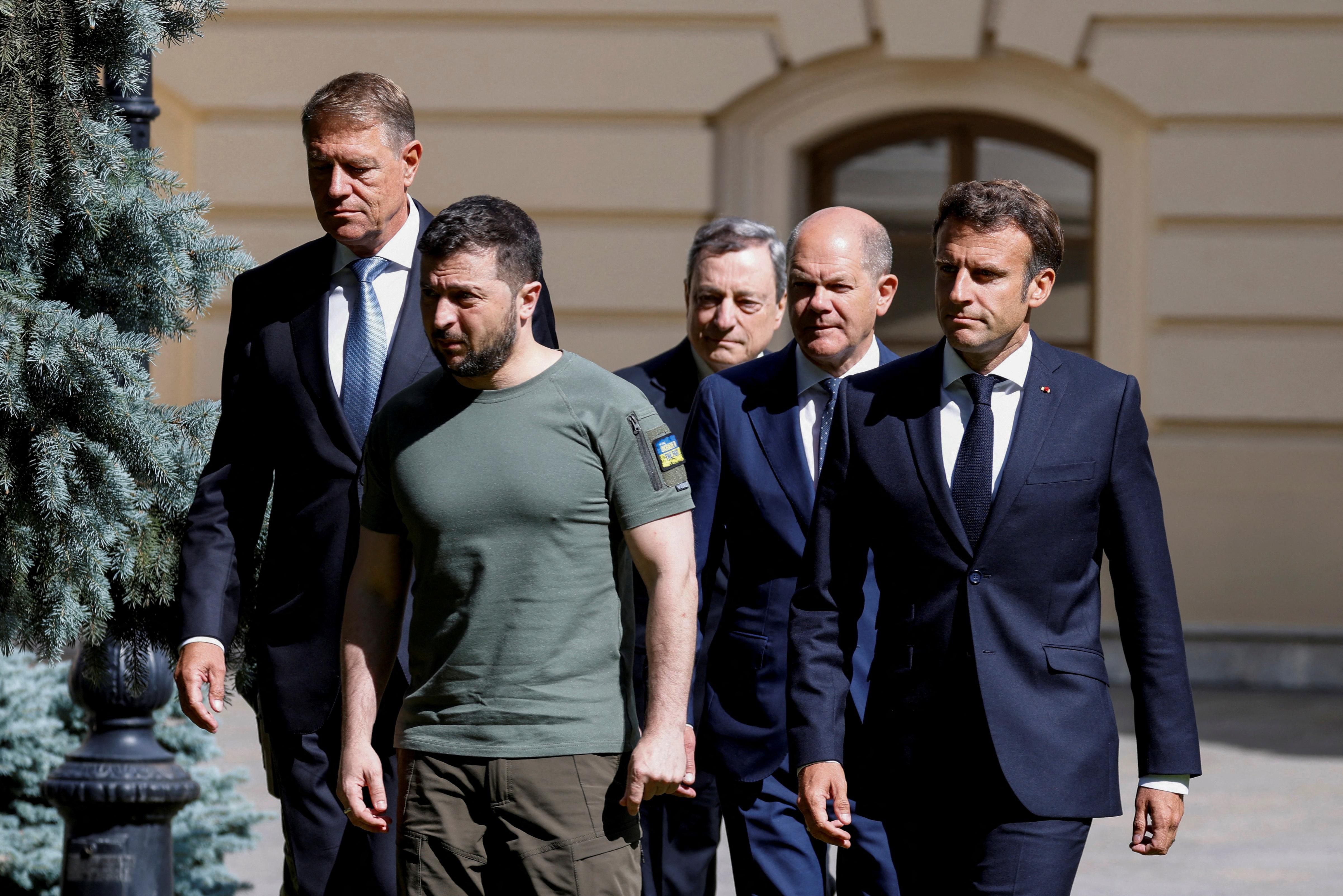The European Commission — the European Union’s executive branch — announced Friday that it would back Ukraine’s bid to become an EU member state. Such a hard-hitting decision by Brussels seemed like a longshot before Russia’s invasion of Ukraine, which has sent shockwaves throughout the world. While this is just the first step in an accession process that could take a decade, it sends a powerful message of solidarity to Kyiv – and a strong warning to Vladimir Putin.
What happens now? The bid will go to a vote by the European Council on June 23-24 and will require the backing of all 27 member states to move forward, a process that can often be tumultuous. If the Council approves Ukraine’s candidacy, Kyiv will be required to introduce a host of significant economic, legal, and political reforms to meet the Commission’s criteria. This would be a massive feat for Ukraine, a country that has long been crippled by corruption and graft. Indeed, in normal times, this process can take 5-10 years, and the presence of an ongoing war will only draw out this process. What’s more, since 21 of the 27 EU states are also NATO members, membership to the EU will likely be perceived as a threat by Putin, and the Union’s expansion eastward as a sign of opportunity for countries like Georgia that are also vying to join the bloc. This makes the process even more complex. However, the Commission’s opinion suggested that one day — even far in the future — Ukraine’s membership to the EU could become a reality.
